How would you feel if someone could access your entire Google search history? Probably pretty upset, right? No wonder. Under the illusion of complete privacy, we research all kinds of embarrassing stuff. Just imagine if they checked your search history at Google job interview!
After all, you don’t want anyone to know that you regularly google things like “pictures of beavers”. And out of all people, the last person you want to know tis your potential employer.
For this reason, an immediate uproar ensued when several media outlets ran stories about Google wanting to allow employers access users’ search history. These claims were obviously ill-founded but they still managed to go viral before anyone at Google could react to them. In the end, Google issued an official statement, according to which “only information that a candidate voluntary provides would be passed to a prospective employer.”
All right, so Google doesn’t let other employers see your search history. But they surely do it themselves when hiring someone new, right? The short answer: No, they don’t.
Long answer: It’s complicated. After all, it comes down to whether you trust Google or not. And you shouldn’t be too quick to trust a corporation, right? We’re going to put Google under scrutiny by posing three essential questions:
- Does Google record your search history?
- Do they see your name attached to it?
- Do they use it when hiring people?
1. Does Google records your search history?
As you probably already suspect, Google records all the searches you make; whether they’re flattering, mundane, or shameful. If you don’t want to simply take my word for it, you can even search through them yourself at https://myactivity.google.com/myactivity. You’ll be greeted by a screen that looks something like this:
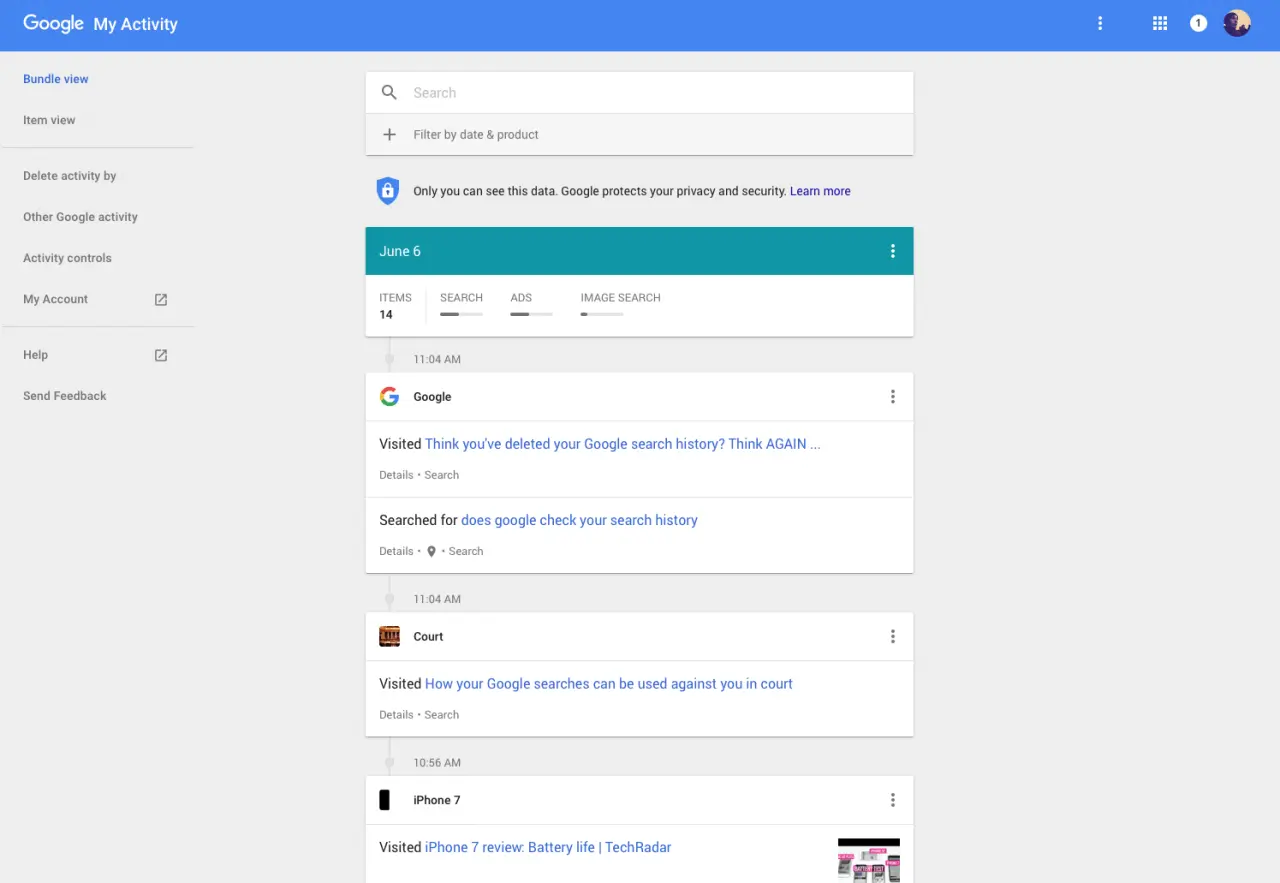
Using this tool, I was able to trace my search history all the way back to Summer 2009. Needless to say, this brief trip down the memory lane was quite an unsettling experience. I knew Google knows a lot about me, I just didn’t realise it was THAT much. So what do they know exactly?
- What you search for. They know when, where, and how often. Google also knows which links do you open and which results you open repeatedly.
- Your bookmarks. Only if you use Chrome as your default browser but everybody does, right?
- What videos you watch on YouTube. Since Google owns YouTube, it’s only natural they’d do this.
- Your location. If you use an Android phone or have Google Maps on your iPhone installed.
- What news interest you. You don't even have to use Google News.
- Probably much more than that. What about the files you put on Google Drive? Or the conversations you have through GMail Chat or Hangouts? Let’s not forget that Google also knows about what kinds of ads you click on. If you use Google Calendar, they also know your schedule. It’s up for an argument whether Google uses all of this data. Still, they do possess it.
Fortunately, Google gives you the option to stop them from tracking your online activity. Just go to “Activity controls” and deselect some or all of the options, as you see fit.
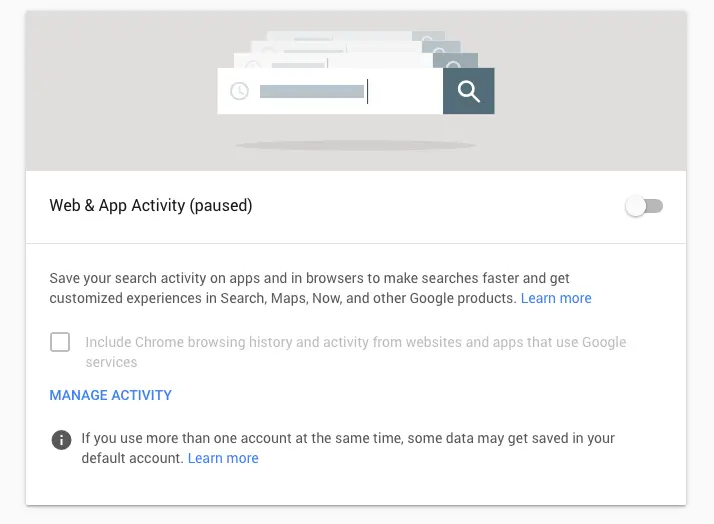
Moreover, you can also delete all the searches you made in the past. Just go to “Delete activity by” and select the time period which you want to delete.
Be careful though. This will delete your search history permanently. If you want to keep your search history for future reference, you can download it by going to “Other Google activity” and clicking on “Download your past searches.”
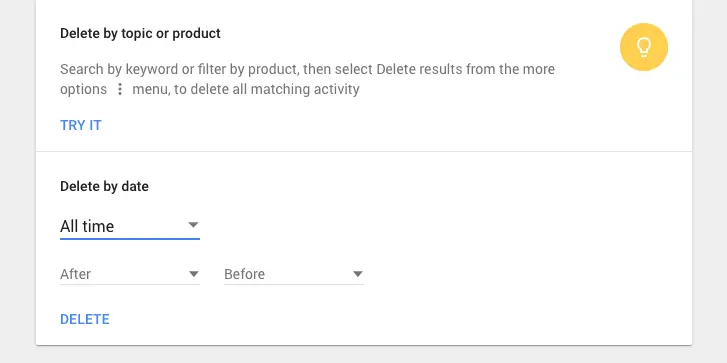
In conclusion—Yes, Google does quietly record all your activity. In the end, you can prevent them from doing it. However, by default, this option is enabled for all users, which results in hundreds of millions people unknowingly feeding Google’s databases with deeply personal data. This means there's a good chance that Google already has all the data they need to check you search history at Google job interview.
2. Can they link your search history to your real-life identity?
The problem is that after deleting your search history in the Google Dashboard, you still cannot be 100% sure it’s gone forever. You can only take Google’s word for it.
That’s why many people on the Internet believe that Google retains this information even after you delete it. The company’s relative secrecy is partly to blame. Still, that's no valid enough reason to suspect Google of unethical practices. In any case, let’s assume the paranoiacs are right—just for the sake of the argument.
If there’s no way you can permanently delete your search history then, we need to ask another pressing question: Is it, or can it be attached to your personal identifier?
At least in theory, Google should be able to make use of your search records without anyone seeing your personal details attached to it. According to Google’s Privacy Policy, they only use the collected information to improve their services and protect their users.
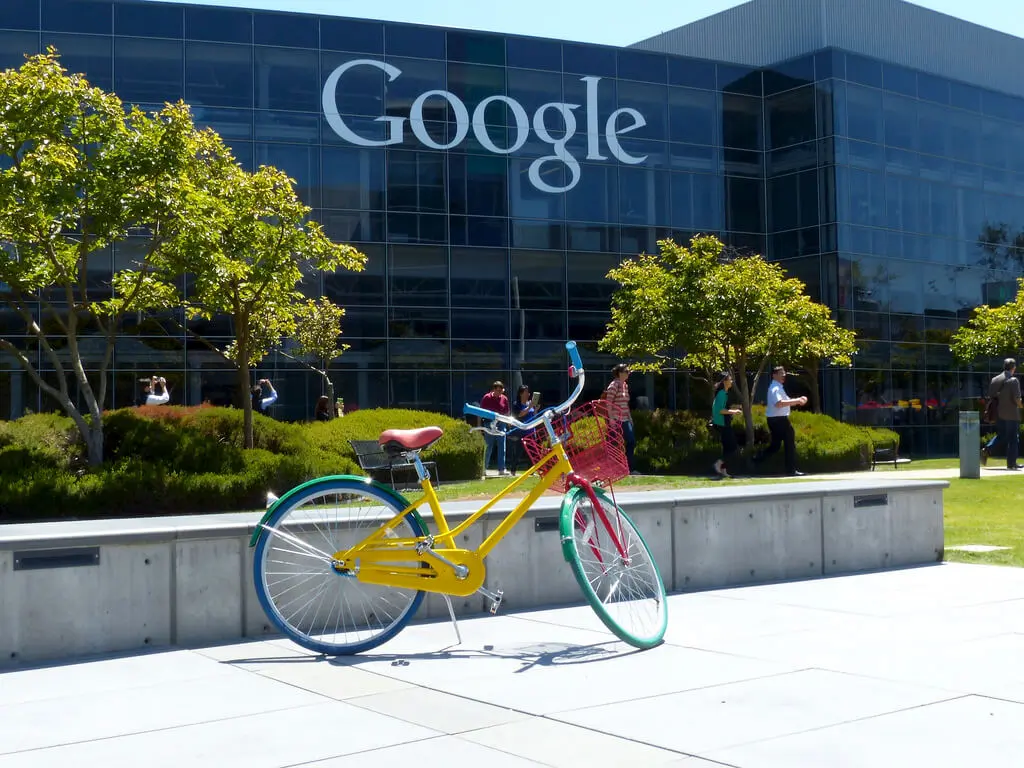
Still, the relative vagueness of the document might indicate these declarations are also somewhat open for interpretation, especially post-NSA scandal.
In 2013, it was revealed that many of the largest internet companies, from Microsoft to Google, were involved in monitoring communications between the NSA and foreign nationals. At long last, the US government confirmed the existence of the scheme. According to the Washington Post, these companies participated knowingly, although the newspaper later retracted this statement. Google denied these claims altogether.
"Even if they have the technical means to check your search history before Google job interview, it doesn’t mean they actually do it."
But let’s not take our musings too far. After all, we don’t want to encourage any conspiracy theories. We only discussed these things to see if it’s technically possible for a Google employee to access your search history while knowing it’s you who made those searches.
In conclusion, the answer is probably yes. The company has the technical means to check your search history at Google job interview. But that alone doesn't mean they actually do it.
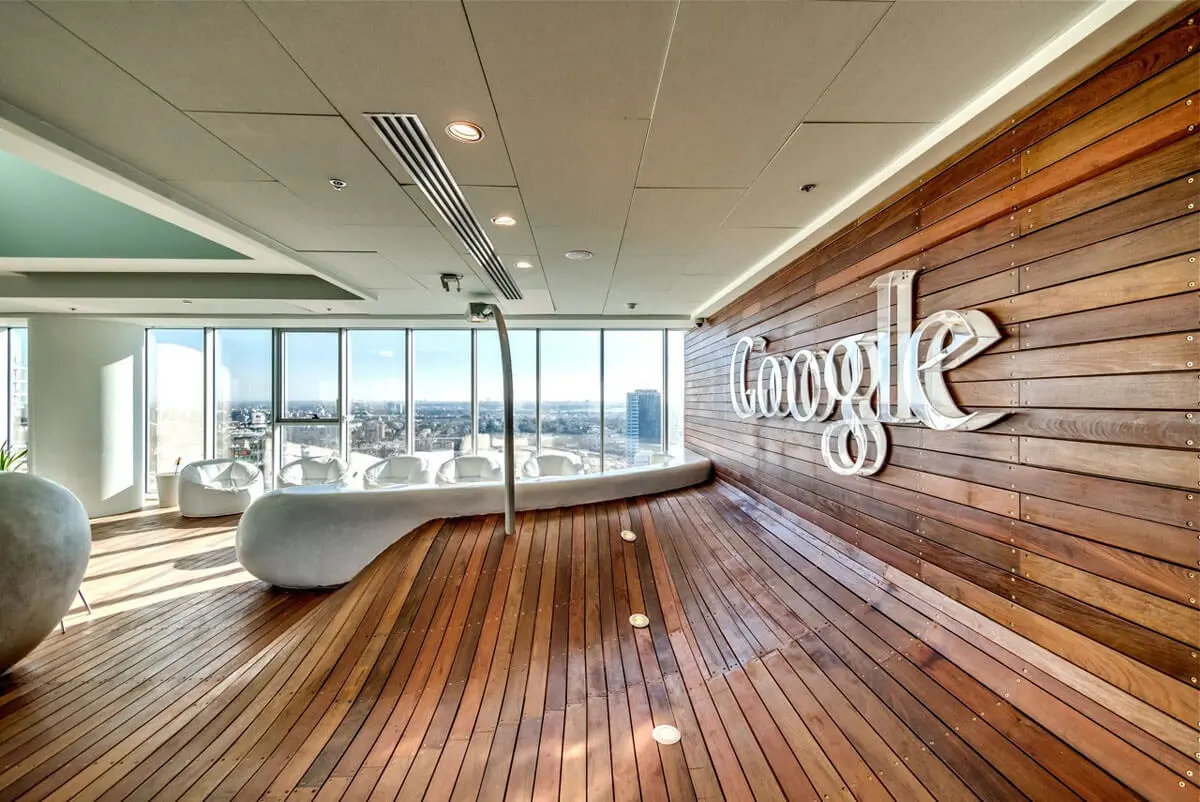
3. Do they actually check one’s search history at Google job interview?
As you have surely noticed, our approach necessarily depends on some guesswork and anecdotal evidence. Since we chose not to trust Google entirely, there’s simply no way around it (#SAD!). In spite of its anecdotal nature, however, the following story is worth taking into account.
While going through the Google application process himself, Bruce R. Miller began to research how Google handles porn searches. After all, you don’t want anyone who’s not searching for porn get porn and vice versa. Miller came up with a pair of queries that straddled the line pretty well. “Pictures of beavers” gave him stock photos of beavers, whereas “pictures of cocks” resulted in nary a chicken. Sounds like a great way to spend your day.
"Google’s HR have access neither to your personal details nor your search history."
But then, after several hours of exploring the issue, it finally dawned on him. What if one of the final things Google might do with his application was to check his search history? They would find a trail of the most disgusting queries you could imagine.
So how did it end? He got the job, which was enough for him to conclude that they don't look at your search history at Google job interview.
Also, at the time of writing his post, Miller was already working for Google, which adds some relevance to his conclusion: “It’s encrypted and it would take a collusion of many people at Google to accomplish such a thing, and it would be known if such things happened."
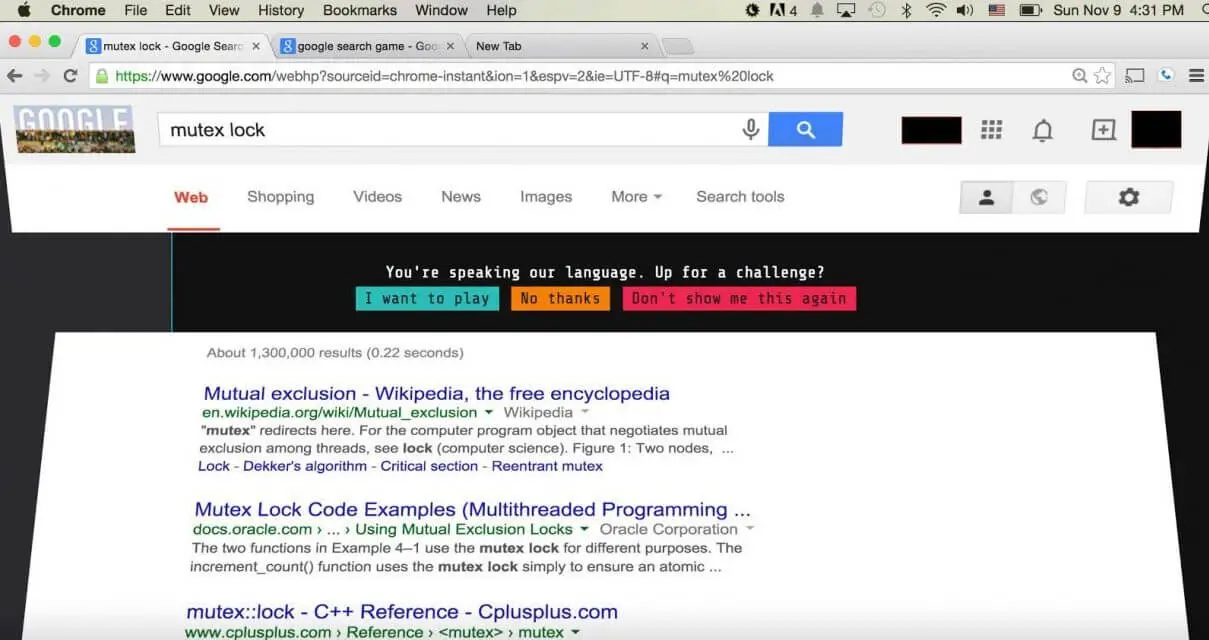
Still, you should know about one more thing in order to get the full picture. There’s one point during the interview process when Google reportedly checks your search history.
In 2015, Max Rosett allegedly scored a job at Google under somewhat suspicious circumstances. While searching for “python lambda function list comprehension” something unusual happened.
The search results split and folded back to reveal a box that said “You’re speaking our language. Up for a challenge?” Of course he was!
After landing on a page that called itself “foo.bar”, he was given 48 hours to solve a programming challenge. Over the next two weeks, he had solved another five challenges. That’s when foo.bar gave him the option to submit his contact information.
Wait, WHAT? I thought Google was supposed to already have all the information they need. Why would they ask for it again?
The most likely explanation is that Google’s HR have access neither to your personal details nor your search history. The foo.bar pop-up itself is handled by an algorithm. In the end, this is probably the best indirect proof that they don’t actually check your search history at Google job interview.
Keep calm. They won't check your search history at Google job interview.
Perhaps the aphorism should be changed to “In Google, veritas.” We live in times when our digital footprints make our private lives publicly available, even if not for all to see.
Although they don’t screen your search history at Google job interview, it doesn’t mean nobody else can. For instance, a group of researchers at Stanford and Princeton developed a system that can connect your profile to your name and identity just by examining your browsing history. When you know what you're doing, you don’t even need Google’s full cooperation for that.
In any case, if this was the only thing stopping you from applying for a job at Google, don’t hesitate any longer. And if you’re still unsure as for how to go about it, check out our guide on how to get a job at Google or this resume from a real person that got hired at Google. Good luck!
Let's put your best professional foot forward regardless of what recruiters check. Transform your LinkedIn profile into an attention-grabbing resume.



